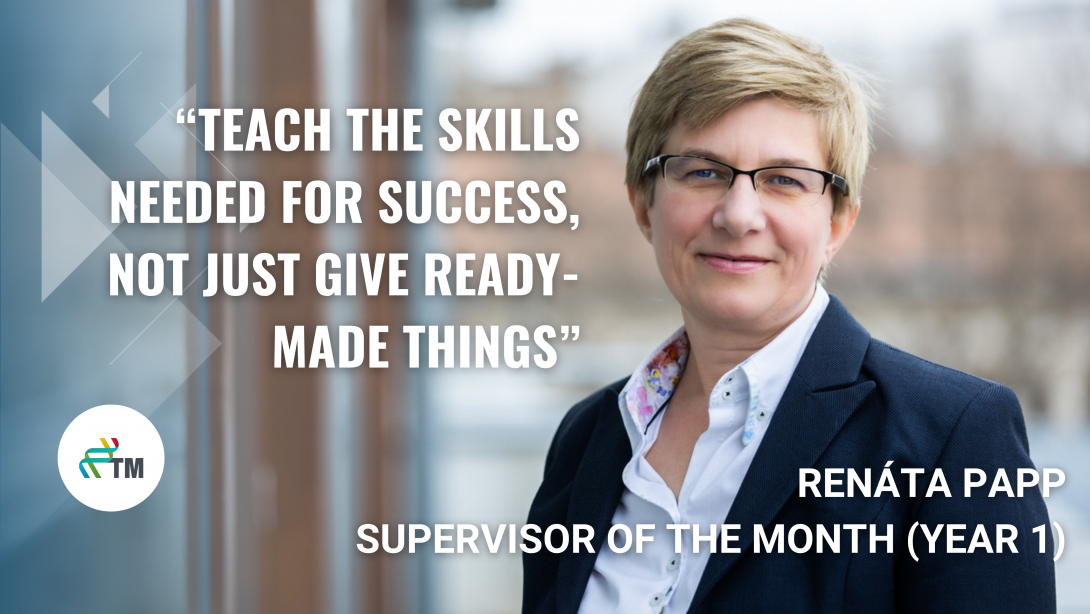
She is an excellent supervisor of the Cardiology & Sport Science Group, with a holistic approach and expertise in different medical fields, helping her students with great dedication. In December, Renáta Papp was named Supervisor of the Month (Year-1) at the Centre for Translational Medicine.
Dr. Papp is the Director of the Centre of Science and Innovation Vice-Rector and Business Development, Semmelweis University, and has been familiar with CTM since it moved from Pécs to Budapest in 2021 and started its operations here. Dr. Papp contributed to this process, as a part of her duties to broaden the research, development and innovation support services available at Semmelweis University. She joined the CTM team in 2023 as a supervisor. „I am a part-time lecturer and researcher at the Department of Pharmacology and Pharmacotherapy, so working with students is part of my university life. At the beginning, I started to support three Ph.D. students, and by now, another two first-year students joined the research group. We navigate them in the world of science in a team, co-supervising with Dr. Péter Ferdinandy, Nóra Sydó and Dániel Veres.
Dr. Papp attends weekly CTM group meetings and the weekly project meetings. Being specialized in family medicine and having massive experience in pharmaceutical industry in different positions, including management of clinical trials, she has a comprehensive perspective, a good overview of many fields, and she is able to bring together different disciplines. Her primary focus is on cardiovascular preventive medication – examining, for example, the effect of statins on the development of sarcopenia – and cardiovascular preventive strategies, like exploring the cardiovascular risks of immigrants versus host population with the impact on planning public health interventions.
“Family doctors follow their patients from birth to death, they witness the physiological and pathological changes during the aging process. What could happen in another environment, such as life microgravity? Human adaptation during spaceflight makes you rethink the whole physiology and realize how interdependent the body's reactions to environmental changes are,” – she shared her initial thoughts. “I have two students whose topics are related to space research. One is investigating the effect of different gravity levels on pharmacokinetics and pharmacodynamics of drugs, while the other is assessing the effect of bisphosphonates in preventing spaceflight-induced bone disorders. We believe that our research could bring added value not only for future astronauts but contributing to healthier aging as well.”
Her belief is that not only supervising but mentoring is the essential technique to pass on knowledge, experience, and inspiration to the next generation of scientists. Mentoring can inspire students to push themselves harder, explore new ideas, and keep pursuing their goals. Having someone who believes in their potential is motivating for them.
(Emese Szabó)